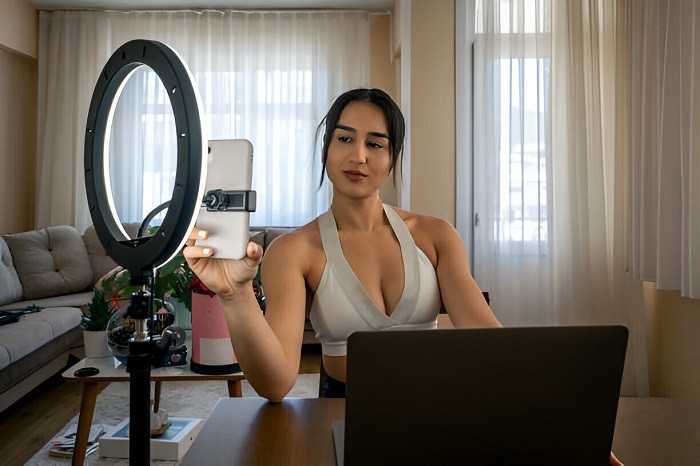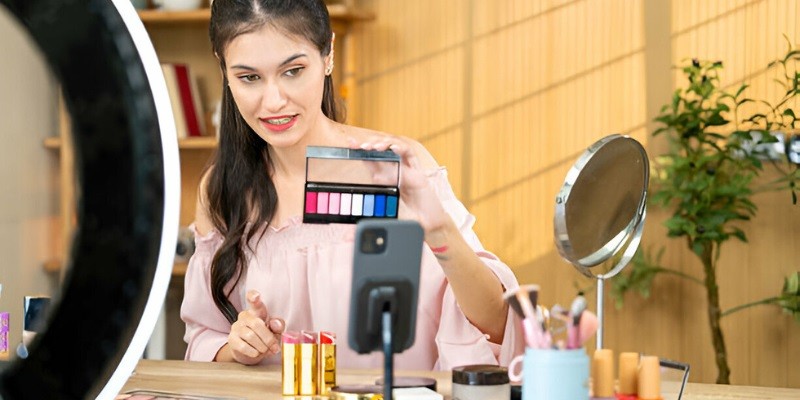Last Updated on January 14, 2026
Social media perpetuates unrealistic beauty standards through filtered images, impacting self-esteem and body dissatisfaction. This phenomenon can lead to negative psychological effects in both men and women.
In today’s digital age, social media platforms showcase flawless faces and bodies, often enhanced through filters and editing tools. The constant exposure to these idealized images can create unattainable beauty expectations, influencing individuals’ perceptions of their own appearance. As a result, many people experience feelings of inadequacy and low self-worth, contributing to issues like body image concerns and decreased confidence.
Understanding the impact of social media on beauty standards is crucial in addressing the mental health implications associated with unrealistic beauty ideals promoted online.
The Evolution Of Beauty Standards
Beauty standards have evolved significantly over time, influenced by various factors ranging from historical events to modern societal norms. The portrayal of beauty has undergone a transformation, shaped by changing perceptions and ideals.
Historical Perspective
In the past, beauty standards were often defined by cultural traditions and historical contexts. For example, in ancient civilizations, specific physical attributes symbolized beauty and status, such as symmetry and certain body shapes.
Modern Influences
Today, social media plays a pivotal role in shaping beauty standards. Platforms like Instagram and TikTok showcase edited and filtered images, creating unrealistic expectations. This digital era has revolutionized how individuals perceive beauty, emphasizing flawless appearances and specific body types.

Negative Impact Of Social Media On Beauty Standards
Social media has significantly contributed to the perpetuation of unrealistic beauty standards, leading to detrimental effects on individuals’ self-perception and mental well-being. The portrayal of flawless and idealized images on various social media platforms has cultivated a culture of unattainable beauty, fostering negative psychological implications and perpetuating dissatisfaction with one’s appearance.
Unrealistic Portrayals
The pervasive use of filters, photo editing tools, and curated content on social media platforms has led to the proliferation of unrealistic beauty standards. The constant exposure to meticulously crafted and airbrushed images creates a distorted perception of beauty, fostering unattainable ideals that individuals strive to emulate. This unrealistic portrayal of beauty on social media has contributed to heightened insecurities and dissatisfaction with one’s physical appearance.
Psychological Effects
The incessant exposure to unattainable beauty standards on social media has been linked to a myriad of negative psychological effects, including heightened body dissatisfaction, low self-esteem, and an increased prevalence of mental health concerns. Individuals often experience feelings of inadequacy and self-doubt as they compare themselves to the flawless images perpetuated on social media, leading to a pervasive sense of discontentment with their own appearance.
Combatting Unrealistic Beauty Standards
Social media has played a significant role in perpetuating unrealistic beauty standards, often portraying an idealized and unattainable image of beauty. This has led to detrimental effects on individuals’ self-esteem and body image. However, there are proactive measures that can be taken to combat these unrealistic beauty standards and promote a more inclusive and positive representation of beauty.
Promoting Diversity
Embracing diversity in beauty is crucial for reshaping societal beauty standards. By promoting diverse representations of beauty across social media platforms, we can celebrate individuals of all races, ethnicities, body types, and gender identities. This inclusive approach fosters a more realistic and accepting perception of beauty, empowering individuals to embrace their unique features and identities.
Encouraging Body Positivity
Encouraging body positivity involves challenging the narrow beauty ideals perpetuated by social media and emphasizing the beauty of all body shapes and sizes. By showcasing real and unfiltered images, promoting self-love, and advocating for positive body image, we can counteract the negative impact of unrealistic beauty standards. This encourages individuals to appreciate and love their bodies just as they are, fostering a more positive and healthy relationship with beauty.
Frequently Asked Questions
How Has Social Media Affected Beauty Standards?
Social media showcases perfect faces and bodies using filters, leading to unrealistic beauty standards and low self-esteem.
How Social Media Affects Appearance?
Social media promotes unrealistic beauty standards through edited images, leading to body dissatisfaction and low self-esteem.
How To Stop Unrealistic Beauty Standards On Social Media?
To stop unrealistic beauty standards on social media, follow accounts that promote diversity and positivity. Unfollow those that encourage unrealistic standards. Surround yourself with content that celebrates individuality and makes you feel good about yourself.
How Is Beauty Standards A Social Issue?
Beauty standards are a social issue as they create unrealistic ideals, leading to body dissatisfaction and low self-esteem. Social media platforms often promote unattainable images, impacting mental well-being. It’s crucial to follow diverse and body-positive accounts to counteract these unrealistic standards.
How Does Social Media Impact Beauty Standards?
Social media showcases idealized beauty, leading to unrealistic standards and body dissatisfaction.
Conclusion
Social media has undoubtedly had a significant impact on beauty standards. The constant exposure to filtered and edited images of seemingly perfect bodies and faces has created unrealistic ideals that can lead to negative body image and self-esteem issues. However, there are steps we can take to combat these harmful effects, such as following accounts that promote diversity and body positivity.
By being mindful of the content we consume and promote online, we can help shift beauty standards towards a more inclusive and realistic representation of beauty.


